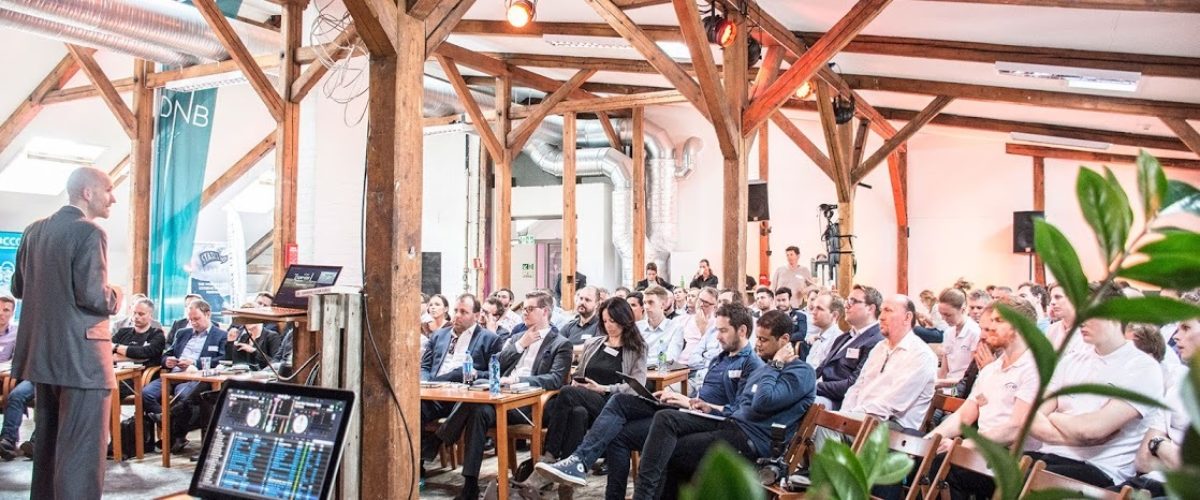Private, public partnership needed in tech ecosystem: Page 2 of 2
By Edwin Yapp November 1, 2016
Cutting back on red tape
Citing a collaboration such as the OIW, where the public sector via the Municipality of Oslo and Innovation Norway was funding the week-long event, Traaseth says there is a great need to understanding the concept of ‘powercoupling.’
“I don’t know of any country in the area of digital transformation who does not work on public and private partnership insofar as innovation is concerned,” she said, adding that understanding this relationship is something governments need to support.
Another reason why this 'powercoupling' is important is that there are also different ways of building partnerships between the private and public sector in different countries. This is why it’s all the more important for Norway to organise the OIW so that it can learn from others, she added.
“Is there something Norway is doing that we need to change? Are there other things we can learn from our peers in Israel, for example? I think the key to success is to increase the transparency between the public and private sectors to enforce collaboration.”
When asked by panel moderator Natasha Friis Saxberg, who is the director of future growth at Atea Denmark, if she concurred with Traaseth’s view, Anya Eldan of Israel’s Innovation Authority agreed.
Eldan, who was also on the panel, said while there needs to be some form of regulation with startups and innovation because public funds are being used, there is an equal need to create an economy in which private companies can reach the goals as quickly as possible and not be held back by bureaucracy.
“Startups are completely different from big companies,” she stressed. “Startups change all the time and governments have to adapt to that. We cannot make companies who get our money report to government rules. We have to change our rules to how the market works.
Eldan, who is currently the general manager of Early Stage Companies and Incubators at the Office of Chief Scientist in Israel, cited an example in which the Israeli government had to relook at how software is created in today’s world and how they had no choice but to adapt to how things are done in that world.
“There is a huge difference in some of the software development centres in Israel,” she explains. “Everything has changed as such development cycles are short. Our government has to change our policies to adapt to the market. I admit it’s not easy as it has never been done like this for the last 20 years. But we had to try.”
She also noted that one of biggest success factors for Israeli startups is that they are not afraid to fail.
“For us, when we give grants, entrepreneurs only have to return our grants if they succeed,” she said. “An entrepreneur who fails can be persistent – that’s the big difference for us – not being afraid to fail. We in government should encourage entrepreneurs to take chances, in every sector.”
And the winner goes to...

In conjunction with the OIW, Innovation Norway and Oslo Business Council organised a startup pitch competition called 100 Pitches, which connects the most promising early stage startups from the Nordics with investors, venture capitalists and corporations in Norway.
After the preliminary rounds in the cities of Trondheim, Stavanger, Bergen and Oslo where over 100 start-up companies participated, the winner of 100 Pitches was Home Control, a Norwegian energy management and home automation provider.
Pitching against 17 other companies at the finals on Oct 19, Home Control won the top prize for being the most innovative startup that seeks to solve a worldwide problem of managing home automation services together from multiple providers.
“We have presented our company probably 100 times, and finally we won!” exclaimed chief executive and founder Yngvar Pettersen. “It is great to win a competition amongst all these great companies.”
Home Control received NOK 300,000 (US$36,200) as its prize. The jury comprised DNB Group chief executive Rune Bjerke, the managing director of Innovation Norway; Innovation Norway’s Traaseth; investors Jeanne Sullivan, co-founder of Star West Partners and Tanya Horowitz, of Capital Partners; and Haje Kamps of TechCrunch.
“Home Control Company solves a problem for consumers worldwide,” Sullivan, who represented the judges said of the winners. “They are already in the market today and have proven that they have a product that works.”
Edwin Yapp reports from the Oslo Innovation Week, Norway at the invitation of the City of Oslo and Innovation Norway. All editorials are independent.
Previous instalments:
Fintech: Collaborate rather than compete, says VC
Tech community bands together to help refugees
For more technology news and the latest updates, follow us on Twitter, LinkedIn or Like us on Facebook.

